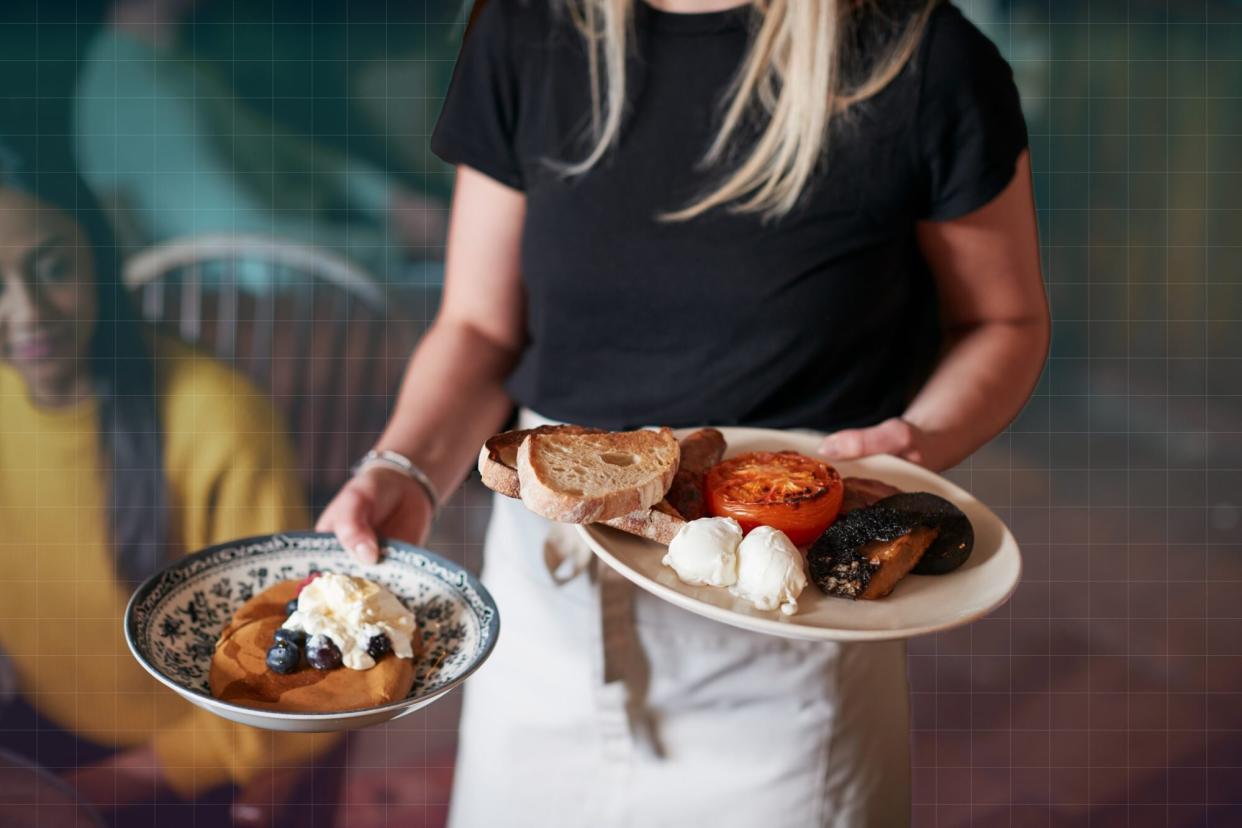How to Politely Send Back Food at a Restaurant

Getty Images
Whether you're going out to dinner to celebrate, to try a new cuisine or because you just don't feel like cooking, dining out can be fun and relaxing. However, your dining experience can be soured (sometimes literally) when something goes awry with your food order. If you aren't one for confrontation, or you're just feeling uncomfortable, here's a guide on how to send your food back according to an etiquette professional.
Related: How to Refuse Food Politely, According to an Expert
When to Send Back Food or Drink
Diane Gottsman, an etiquette expert, author and founder of The Protocol School of Texas, offers her advice on when it's appropriate to send your food back: "When you order an item from the menu, and it comes to the table undercooked, overcooked, over-spiced or is completely the wrong item, you may certainly ask for another without hesitation."
Here are a few other situations when it would be appropriate to send your food back:
Something is in your food that you asked to be omitted, or something is missing from the dish you ordered. If you have a food allergy or follow a specific diet like veganism or keto and are making modifications to your order, ask your waiter to confirm the changes with the chef before placing your order.
Your food is too cold. You can wait for your food to cool down if it's too hot, and your waiter will normally warn you about touching hot plates, but if your food arrives unexpectedly lukewarm or even cold, it can be an unpleasant, disappointing experience.
Your plate or glass is dirty. Whether you found lipstick on your cup or old food caked onto your plate, ensure your safety by asking to send your food back.
Next time you dine out, make sure not to do these "polite" habits that are actually rude.
How to Send Back Food or Drink
Once you've identified the issue with your food, now comes the part most people dread: telling the server. Here are a few helpful pointers to keep in mind:
Always say "Thank you." Being kind goes a long way, and saying thank you to your waiter and the kitchen staff or chef for assisting you should definitely be done.
Advocate for yourself, but be kind. If you genuinely did not make a mistake when ordering and your health is at stake (in situations where you suspect there was cross-contamination or your allergy request was ignored), be kind while standing up for yourself. This can be a teachable moment for everyone involved.
Don't insult the chef. If your food is just plain bad, don't use it as an excuse to attack the kitchen staff or bartender. Instead, calmly explain what's off about the food or drink.
Above all else, "Treat others how you want to be treated," advises Gottsman. If you snap at your waiter or are aggressive when communicating the issue with your food or drink, things could go further awry.
"When you send a food or drink item back, it's important to remain pleasant and nonconfrontational. Remember that the server who brought the food was not responsible for cooking the food," says Gottsman. And if you do meet the chef or someone from the kitchen who was responsible for cooking the food, don't express your issue angrily with them.
"The bartender may have been heavy-handed, or it simply may be a recipe you do not care for, but asking kindly if they can try again, in a friendly tone of voice, goes a long way in keeping the conversation polite."
When Is It Not Appropriate to Send Back Food or Drink?
There are a few situations when it is not OK to attempt returning your food, including:
You've already eaten most of your food. It's a lot less likely that your server or the kitchen staff will take your issue seriously if you've already consumed most of the food or drink that you'd like to send back.
You don't have a specific reason or are lying. It's definitely not appropriate to lie to your server about what's "wrong" with the food or your drink if there's actually no issue.
You ordered the wrong item. If you placed the order yourself (maybe through an app or website or just misread the menu or misspoke) but the mistake is on you, it can be a tricky situation. Restaurants want their customers to be happy, but always do your best to order correctly to avoid any mix-ups.
Gottsman also says that comparing your food to someone else's, whether you're dining with them or spotted the food across the restaurant, is not grounds for a replacement. "If you decide that your neighbor's dish looks better than yours, or your table mate's cocktail looks prettier and more festive, those are not good reasons to send something back."
Bottom Line
Sometimes getting an incorrect or messed-up order is a hazard of dining out. But if it happens to you, remember to be kind and gracious when communicating with the restaurant staff. Clearly stating your food allergy, reading the menu carefully and making your order mindfully are great ways to avoid having to send back food or drink.
You can avoid these types of situations altogether by dining in and trying out these 30 copycat dinner recipes instead. If you're a guest for dinner in someone else's home, here are 10 things to avoid if you want a future invite. And, whatever the situation, always say the magic words: "Thank you!"

